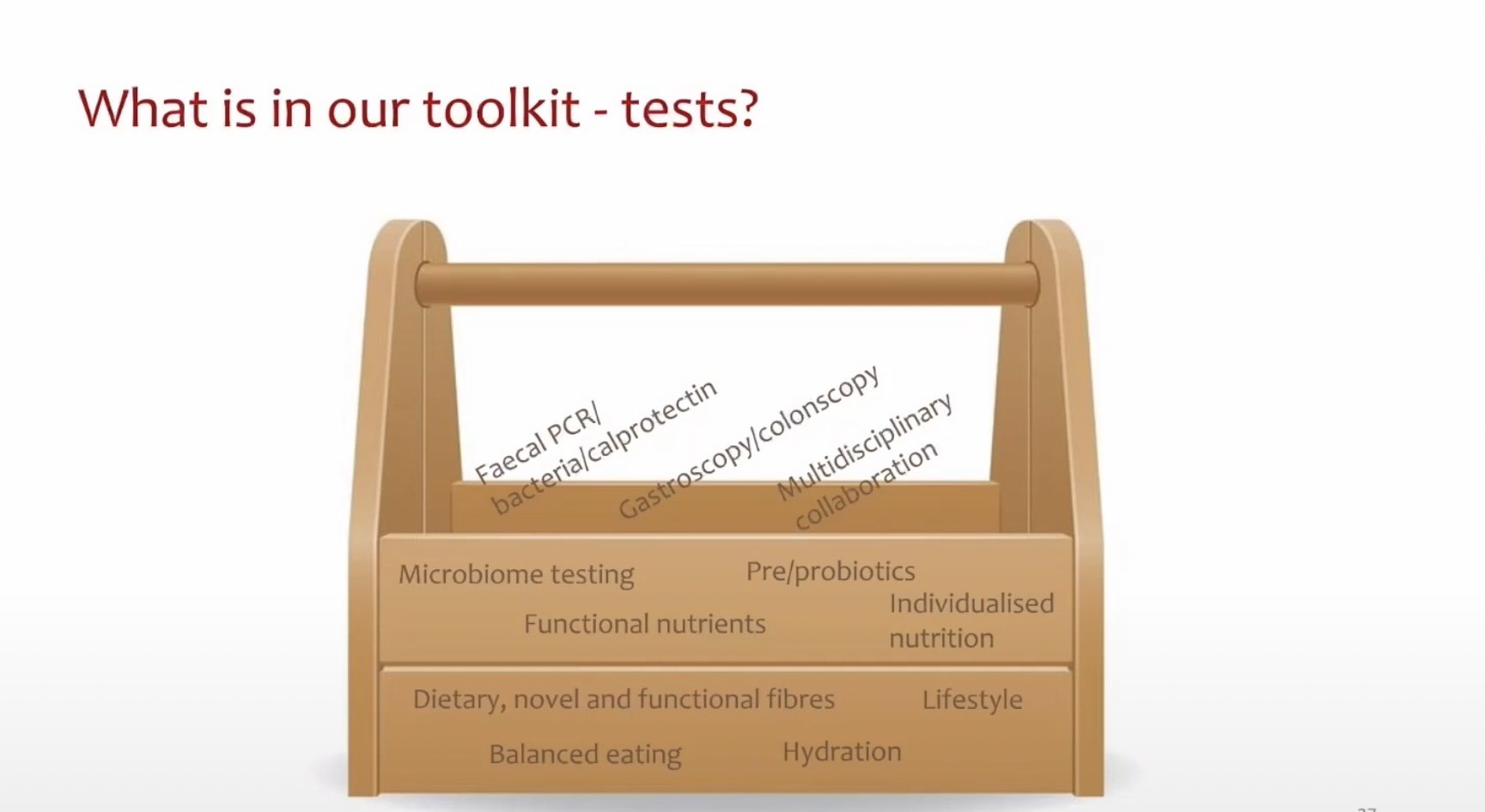The Value of assessing “your” Microbiome
Every human has a unique population of bacteria and assorted species of microorganisms that co-habits us. Some healthy, some not so. What we have learned in the last decade but more so in the last 4 years is phenomenal in the potential for our gut bacterial landscape to affect the relative health or disease of its host. The association between your unique bacterial population and you is complex however your gut ecosystem might be the most complex—and, perhaps, the most critical to your longevity and your potential for disease prevention.
Though medicine has long dismissed the gut as an isolated system of tubing with little consideration outside of acid reflux and irritable bowel issues, we now know that imbalances in the gut are inextricably linked to inflammation, mental health, accelerated aging, nearly all chronic disease including cancer, diabetes, heart disease, and dementia.
Recently, scientists have effectively been able to reverse aging and disease in aged mice simply by modifying their gut microbiome with faecal transplants from young, healthy mice—and vice versa, accelerating aging and disease in young mice by disrupting their microbiome with transplants from older mice.
Why did this work? Because the gut, is more than “just a tube,” and is a microbiome that’s home to some five thousand species of bacteria and as many bacterial cells (roughly 30 trillion) as we have human cells.
When in balance (symbiosis), these bacteria keep the body in health. Yet when out of balance (dysbiosis), bad bacteria can grow like weeds, outnumbering good bacteria and creating a toxic environment that weakens the gut barrier, allowing waste products like undigested food particles and bacterial toxins to leak into the bloodstream—driving chronic inflammation and increasing the risk of virtually everything from obesity and auto-immune disease to heart disease, dementia, diabetes, and cancer.
Ordering a Microbiome assessment, a simple stool sample sent to a sophisticated testing lab, has the potential to uncover a vast amount of information about you and your bacterial co-habitants.
If you have dysbiosis and a low what we call biodiversity you may lack the internal support to optimize your health.
The beneficial gut microbe Akkermansia Muciniphila, for example, stimulates the secretion of glucagon-like peptide-1 (GLP-1), which plays a crucial role in regulating glucose levels and metabolism, and numerous studies have linked low levels of this microbe to diabetes, insulin resistance obesity and metabolic syndrome.
Importantly, many gut microorganisms can create metabolites that trigger inflammation and cardiac or vascular diseases—and levels of certain gut bacteria, such as Enterobacteriaceae and Streptococcus, are strongly linked to atherosclerosis. More broadly, systemic inflammation from dysbiosis can facilitate the development and progression of cancer as well as neurological disorders through the gut-brain axis.
Restricted eating practices for long periods as well as poor lifestyle choices can leave you less equipped with your army of good bacteria to support your immunity, your vascular health, and your capacity to Age well.
It’s no wonder western civilisations are facing unprecedented and exponential illness, given that > 60 percent of our calories come from ultra-processed foods that fuel these “bad bugs” and destroy the microbiome. Diversity in the gut microbiome also tends to decrease with aging, creating an opportunistic environment for bad bugs to thrive, ageing can often accelerate gut issues and conversely gut issues can accelerate ageing.
Using a food as medicine and nutrient support strategies, we can take steps to restore the gut once we understand how our’s functions.
This assessment can be ordered in clinic as part of your functional health assessment with Victoria.
Tend to Your Inner Garden
Gut bacteria are fussy eaters.
However, we know what they like and don’t like. Bad bacteria thrive on starches, sugars, and ultra-processed foods. Good bacteria feed on prebiotic fibre ( avocados, artichokes, asparagus, berries, peas, chia seeds, and pistachios), probiotics ( fermented foods like sauerkraut, pickles, tempeh, miso and kimchi), and polyphenols in colourful plants ( berries, olive oil, turmeric, pomegranate, cranberries, green tea ).
Consider significantly reducing sugars and starches, especially as part of processed foods, and upping your intake of prebiotic, probiotic, and polyphenol-rich foods as a first step to help bring your gut into balance.
Because you want to foster a diversity of beneficial gut bacteria, you also want to aim for diversity in your diet, e.g., eating a variety of macronutrients and polyphenols from red, yellow, green, purple, and orange vegetables.
Investigating your Microbiome can provide significant insight into how to optimise you, from the inside out.
I consider this the GOLD STANDARD in personalised preventative health. Even if you’re eating all the right things—and eliminating the wrong things—you may need some outside investigation to support maintaining a plentiful and diverse gut population or to support the repair of the gut lining.
Targeted probiotics help populate your gut with beneficial strains of bacteria and are critical to protecting and rebuilding the gut however it is not as simple as buying over the counter generic probiotics as you may be inadvertently inoculating your biome with a bacterial strain you already have in overgrowth.
Prebiotics, meanwhile, are a form of soluble and less soluble fibre that feed good bacteria in the gut. These come in many forms and there is no one size fits all. Just like we all look different, have different blood types and fingerprints, no 2 human microbiomes are identical.
Avoid Gut Busting Medications
Ironically, many of the drugs commonly prescribed to alleviate gut problems also cause gut problems if taken long term, particularly ant-acid medications which prevent the absorption of essential nutrients and can lead to dysbiosis in the gut.
Other medications that can damage the gut include antibiotics, steroids, birth control, and anti-inflammatories like ibuprofen and aspirin. Artificial sweeteners can also alter beneficial bacteria.
Understanding your inner garden is one of your smartest moves when looking to optimise your health.
You can rally your inner defence force and minimize the perpetrators. Your own private internal army supporting you to Age well. I consider this true prevention medicine.
Victoria Pavasovic CFNMP RN MACN
Certified Functional and Nutritional Medicine Practitioner.
Co-Biome Microbiome Practitioner
Skin + Hair Health + Restoration
Compounded skin nutraceuticals
Professional Food and Nutritional Coach
References
1. Parker A, Romano S, Ansorge R, et al. Fecal microbiota transfer between young and aged mice reverses hallmarks of the aging gut, eye, and brain. Microbiome. 2022;10(1):68. Published 2022 Apr 29. doi:10.1186/s40168-022-01243-w
2. Ferranti EP, Dunbar SB, Dunlop AL, Corwin EJ. 20 things you didn’t know about the human gut microbiome. J Cardiovasc Nurs. 2014;29(6):479-481. doi:10.1097/JCN.0000000000000166
3. Rodrigues VF, Elias-Oliveira J, Pereira ÍS, et al. Akkermansia muciniphila and Gut Immune System: A Good Friendship That Attenuates Inflammatory Bowel Disease, Obesity, and Diabetes. Front Immunol. 2022;13:934695. Published 2022 Jul 7. doi:10.3389/fimmu.2022.934695
4. Hasani A, Ebrahimzadeh S, Hemmati F, Khabbaz A, Hasani A, Gholizadeh P. The role of Akkermansia muciniphila in obesity, diabetes and atherosclerosis. J Med Microbiol. 2021;70(10):10.1099/jmm.0.001435. doi:10.1099/jmm.0.001435
5. Noor R, Naz A, Maniha SM, et al. Microorganisms and cardiovascular diseases: importance of gut bacteria. Front Biosci (Landmark Ed). 2021;26(5):22-28. doi:10.52586/4921
6. Beyond the brain: The gut microbiome and Alzheimer’s disease. National Institute on Aging. Published June 12, 2023.
7. Ser HL, Letchumanan V, Goh BH, Wong SH, Lee LH. The Use of Fecal Microbiome Transplant in Treating Human Diseases: Too Early for Poop?. Front Microbiol. 2021;12:519836. Published 2021 May 13. doi:10.3389/fmicb.2021.519836
8. Paultre K, Cade W, Hernandez D, Reynolds J, Greif D, Best TM. Therapeutic effects of turmeric or curcumin extract on pain and function for individuals with knee osteoarthritis: a systematic review. BMJ Open Sport Exerc Med. 2021;7(1):e000935. Published 2021 Jan 13. doi:10.1136/bmjsem-2020-000935
9. Bittersweet : artificial sweeteners and the gut microbiome. Review article Nature Medicine 28,2259-2260.
10. Hyman,M. Young Forever : publication March 2023.





